PCAF is supported by Guidehouse, a global consultancy firm specialized in energy, sustainability, risk, and compliance for the financial industry. Guidehouse serves as the Secretariat of PCAF, providing technical support to PCAF signatories in the development and implementation of the Global GHG Accounting and Reporting Standard for the Financial Industry. Throughout the development of this Standard, Guidehouse facilitates the PCAF Core Team’s work by moderating their technical discussions, reviewing the content, and compiling and editing the Standard.
If you have questions about PCAF that are not answered in the Frequently Asked Questions below, feel free to contact the following experts from Guidehouse.
You can receive updates by following PCAF on LinkedIn.
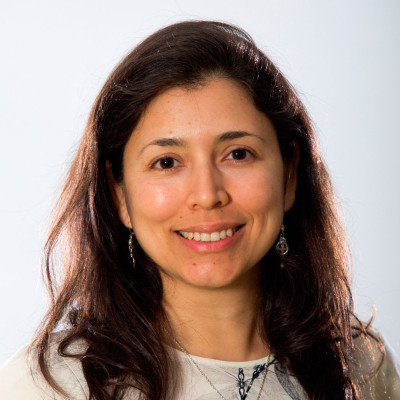
info@carbonaccountingfinancials.com
Angélica Afanador is a Director at Guidehouse, where she leads all activities in the field of sustainable finance. Over the past 10 years, Angélica has supported various financial institutions on greenhouse gas (GHG) accounting of their loans and investments. Angélica is the Executive Director of the PCAF Secretariat, facilitating the work of the PCAF Steering Committee and the PCAF Core Team.

info@carbonaccountingfinancials.com
Caspar Noach is an experienced Global Climate Strategy and Reporting Expert for the corporate and financial industry. As a Director at Guidehouse he has built 18 years of experience in carbon accounting, target-setting, reporting, and implementing measurable carbon reduction programs. Caspar serves as PCAF's Technical Director. In this role he oversees the work of the PCAF Core Team to develop and evolve the Global GHG Accounting and Reporting Standards for the Financial Industry and also leads the PCAF Secretariat Technical Teams supporting the implementation of the Standard via the PCAF Academy, Technical Assistance and the PCAF Database.
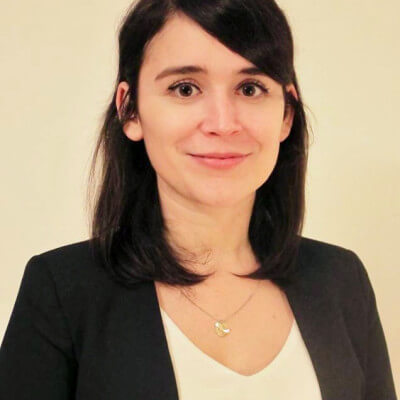
info@carbonaccountingfinancials.com
Madeline Schneider is an Associate Director at Guidehouse with other 10 years of experience in sustainable finance and energy efficiency. She advises financial institutions in designing, implementing, and reporting sustainability strategies and actions on their transition towards net-zero emissions. Madeline is the Director of Operations of the PCAF Secretariat, coordinating all activities related to regional and national implementation, partner and stakeholder management, policy alignment as well as communications and marketing.

info@carbonaccountingfinancials.com
Heidi Buckhout is a Managing Consultant at Guidehouse, with over 10 years of experience in strategic marketing and communications. Heidi manages external communications at PCAF, supporting sustainable program growth and progress on a global scale.

database@carbonaccountingfinancials.com
Arjun Ganguly is a Senior Consultant at Guidehouse where he advises financial institutions and large corporates on decarbonization pathways, and supports the development and implementation of carbon accounting solutions. Arjun leads the PCAF emissions factor database and is part of the technical assistance team.
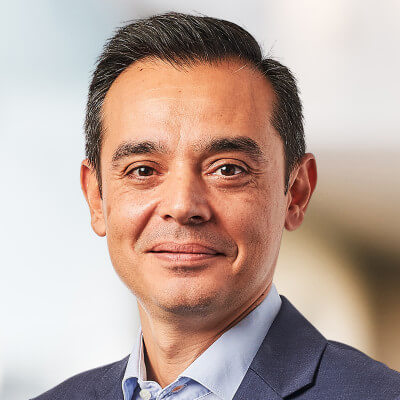
info@carbonaccountingfinancials.com
Boris Lagadinov is an Associate Director at Guidehouse with over 20 years of experience in climate policy and carbon pricing. He has also been working with investors in the energy transition space by providing support with commercial due diligence. Boris leads PCAF work with strategic and existing accredited partners.

info@carbonaccountingfinancials.com
Bart van Lunteren is a Managing Consultant at Guidehouse where he advises large corporates and financial institutions on sustainability strategy and implementation plans. Bart leads PCAF’s Accredited Partner Program, which supports global and regional growth of consultancies, software providers, and data providers

ta@carbonaccountingfinancials.com
Prabina Khanal is a Senior Consultant at Guidehouse, where she supports financial institutions and other large corporates to measure and report GHG emissions, identify climate related risks, and set climate strategies for net zero transition and regulatory compliance. Prabina leads the Technical Assistance team and co-ordinates the Asia-Pacific chapter for the PCAF Secretariat.

info@carbonaccountingfinancials.com
Lina Fromme is a Consultant at Guidehouse, where she works on GHG accounting and sustainability reporting for large corporates, financial institutions, and insurance companies. Lina leads the Policy and Regulation team at PCAF and is part of the PCAF Technical Assistance team.

info@carbonaccountingfinancials.com
Tushar Biyani is a Managing Consultant at Guidehouse, where he supports organisations in developing and delivering decarbonisation and climate strategies. Tushar leads the PCAF activities in the UK region.

info@carbonaccountingfinancials.com
Marco Tormen is a Managing Consultant at Guidehouse and helps financial institutions in their transition into a carbon neutral economy by 2050. Marco co-leads PCAF activities in Europe, focusing on DACHLi, Northern, Central & Eastern Europe and is the Lead on Insurance-Associated Emissions.

info@carbonaccountingfinancials.com
Sasha Matovic is a Managing Consultant at Guidehouse, where she leads engagements with financial institutions and large corporate clients on decarbonization and climate risk. Sasha leads the regional PCAF activities for North America.

info@carbonaccountingfinancials.com
Tiange Wei is a Managing Consultant at Guidehouse where she advises financial institutions and large corporates on decarbonization and climate-related strategy. Tiange leads all regional PCAF activities in APAC and is a member of the Technical Assistance team.

info@carbonaccountingfinancials.com
Marlene Appel is a Consultant at Guidehouse where she advises financial institutions and large corporations on measuring and disclosing their GHG emissions, setting climate targets, and designing and implementing sustainability strategies to transition to net zero. Marlene leads the PCAF activities in Latin America & the Caribbean and is part of the PCAF Technical Assistance team.

info@carbonaccountingfinancials.com
Doris Neelen is a Senior Consultant at Guidehouse, where she supports financial institutions and other large corporations in measuring and disclosing their current emissions and setting targets for their emissions. Doris co-leads PCAF activities in Europe, focusing on Western & Southern Europe.
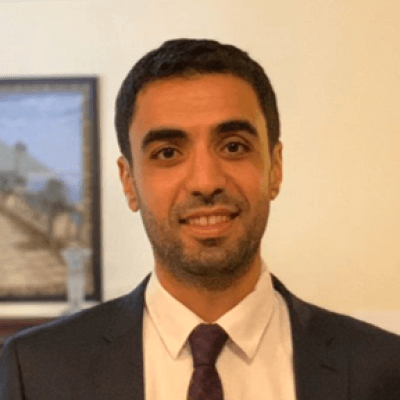
info@carbonaccountingfinancials.com
Eslam is a Managing Consultant at Guidehouse. He has more than 10 years of experiences in preparation of sustainable development policy instruments and energy efficiency and decarbonization strategies. Eslam leads PCAF activities in the Middle East region.
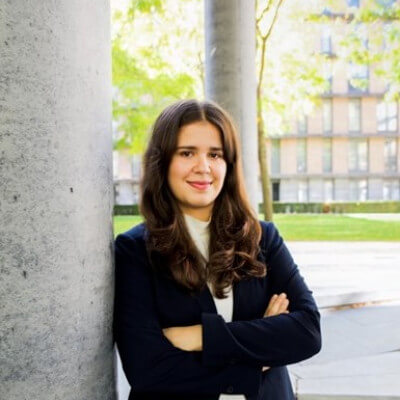
info@carbonaccountingfinancials.com
Madalena Martins is a Consultant at Guidehouse where she supports financial institutions and large corporations in measuring and disclosing their emissions, setting climate targets, and defining implementation strategies to reach those targets. Madalena leads the PCAF activities in Brazil and supports the PCAF Core Team.

info@carbonaccountingfinancials.com
Bolaji Akinola-Alli is a Senior Consultant at Guidehouse, working at the intersection of sustainable finance and the energy transition. He supports institutions across the EMEA region in developing climate-aligned solutions through expertise in strategy, change management, and sustainable business design. Bolaji leads PCAF’s regional activities in Africa and is the founder of Africa’s Big Switch podcast, where he explores bold ideas shaping the future of energy and finance on the continent.
PCAF stands for the Partnership for Carbon Accounting Financials. It is a global industry-led initiative to measure and disclose the greenhouse gas emissions financed by loans and investments. Ultimately, this is meant to trigger changes in banks’ and investors’ portfolios which align with the goals of the Paris Agreement.
PCAF was created because a group of financial institutions, ranging from banks, insurance to asset owners and managers, realized their role was crucial in accelerating the transition to a decarbonized economy. Banks represent most of the available capital globally and since the Paris Climate Agreement the largest banks have still invested more than $3.8 trillion into the fossil fuel sector. This is equivalent to more than $2bn for every day since the end of 2015, with no downward trend and no assessment of the carbon impact of that finance. Given the scale of the climate challenge and the crucial role of the financial sector in facilitating the net zero carbon transition, the Partnership for Carbon Accounting Financials was created.
PCAF has set two objectives: (i) develop a global greenhouse gas (GHG) accounting standard making GHG accounting common practice within the financial sector; (ii) attract more than 1,000 financial institutions by 2025 globally that assess and disclose the emissions associated with their loans and investments.
Building on the GHG accounting methodologies developed in the Netherlands and North America, a harmonized global GHG accounting standard for financial institutions was developed. The Standard covers various asset classes (such as mortgages, commercial real estate, business loans, listed equity and corporate bonds, etc.) and is open-source and transparent.
As PCAF develops a globally harmonized standard for the way financial institutions measure and disclose climate impact, specifically financed emissions as defined under the Greenhouse Gas Protocol, it becomes possible to act to reduce impact and align with global and national policy goals.
The GHG Accounting and Reporting Standard developed by PCAF is a foundation for various other initiatives, making PCAF complementary to existing climate initiatives.
Through GHG accounting, PCAF members become aware of their impact and are triggered to have a tangible impact in the real economy.
PCAF enables the financial industry to take meaningful, collective, and global action against climate change by creating open-source GHG accounting methodologies covering various asset classes.
At the end of 2018, PCAF members measured the GHG emissions associated with these assets: a total of $1.2 trillion USD. Furthermore, some PCAF members are already taking action on their portfolios by developing dedicated financial products that incentivize clients to engage in low-carbon solutions.
PCAF is the only industry-led initiative in the market that enables financial institutions to assess and disclose greenhouse gas emissions of loans and investments through an open-source and transparent approach built on the Greenhouse Gas Protocol.
PCAF complements other climate initiatives addressing the financial sector, such as:
PCAF is organized by a steering committee comprised of representatives of: ABN AMRO, Amalgamated Bank, ASN Bank, Global Alliance for Banking on Values (GABV), Morgan Stanley, the Net-Zero Asset Owner Alliance (represented by Nordea Life & Pension), NMB Bank, and Triodos Bank.
PCAF is sponsored by the William and Flora Hewlett Foundation and the IKEA Foundation. Various other actors are endorsing and promoting PCAF within their regions or among their members.
Yes. Participation in PCAF includes an annual fee to support the activities of PCAF. Please contact the PCAF Secretariat for more information.
Access to PCAF's web-based emission factor database and corresponding database methodologies is exclusively available to PCAF signatories.
PCAF pursues inclusive growth to attract financial institutions of all types, considering diversity of geographies and sizes of institutions. The signatory fee is dependent on size, enabling participation of smaller financial institutions with no or low fees.
Financial institutions that join PCAF commit to assess and disclose the GHG emissions associated with their portfolio of loans and investments within a period of three years using jointly developed accounting methodologies. A commitment letter can be provided on request.
Furthermore, financial institutions that commit to PCAF will obtain free technical assistance to start measuring emissions financed by loans and investments. More details on what is included in this technical assistance are available here.